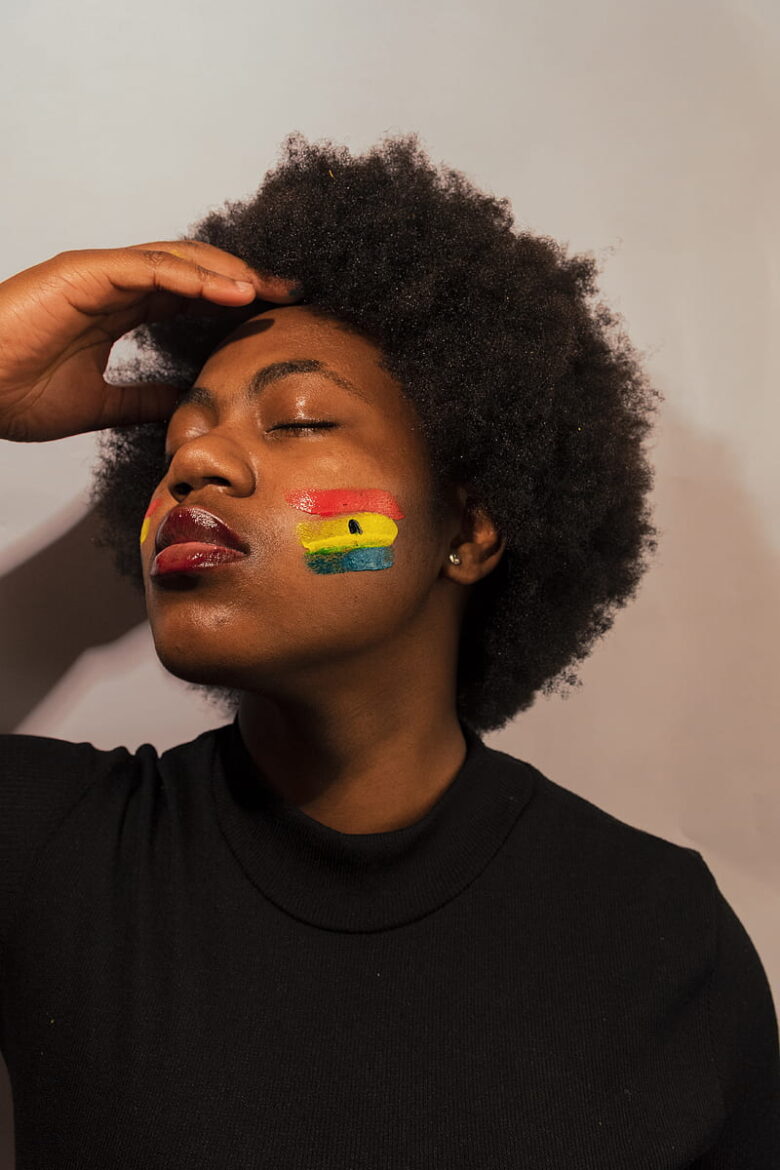What does it mean to be free? That is the question of an 1876 court case involving a young girl that had been enslaved in the historic Gold Coast area of Ghana, a region where slavery had been outlawed, but enforcing it would prove to be hard to do. Loyalties run deep in political spectrum, and one does not wish to bite the hand that feeds when the “Important Men” are the ones providing economic gain for colonists. For some of the colonies, it was easier to look the other way.
In a graphic history titled “Abina and the Important Men” by Trevor R Getz and Liz Clarke, the true story of a young girl named Abina Mansah is told who was wrongfully enslaved in a town called Salt Pond in the Gold Coast Protectorate, that today, we know as the country of Ghana. Slavery had been abolished there by British colonial rule in 1875.
Abina had been previously enslaved in several households in Asante, but had been brought to Salt Pond and sold by her master to a man named Quamina Eddoo, a wealthy palm oil planter. She was then told she had to marry another man named Tando. If Abina did not oblige to this, she would be beaten. Abina then fled to Cape Coast, a bustling merchant town, where Abina believed everyone was free and she could escape the hands of slavery from Eddoo and charge him with the crime of enslavement.
Abina wanted her truth to be told, refusing to be silenced, so she took her case to court. She would present her case in front of four important men: The defendant Quamina Eddoo, the magistrate William Melton, her prosecutor James Davis, and the defendant’s attorney James Hutton Brew. This powerfully, visual book, including very old trial transcripts of the court case, gives historical insight into the difficulties in 1876 Gold Coast to define what was considered a “free” person and what was considered a “slave”. This would prove to be difficult because of the economic influence and insatiable thirst for Palm oil by the British buyers, as well as the gendering differences in the British paternal society of understanding who were wives and children in a domesticated household and who were slaves, as well as language barriers between the participants in the case.
From reading the transcripts of the court case, many questions would be raised during the trial in regards to money, such as whether or not money had exchanged hands when Abina was sold from a man named Yaw Awooh to Quamina Eddoo. This was something the court felt strongly would suggest someone being sold into slavery, however, many times this would be done without the slave witnessing the exchange of money. Other questions would arise as to what type of labor was expected from Abina, was she forced to do this labor, what type, if any, physical abuse took place, was there a marriage ceremony, and the defining of the terms “slave” and “master” and whether or not Abina had been called a “slave” by her captures. These questions are asked in an attempt to solidly understand and draw the line as to who is a slave and who is free. However, the interpretation by both sides of the aisle, that being Abina and the others being the important men, is sometimes blurred as to what is defined as a slave. This was because not everyone spoke the same language and had the same words and meanings to those words. Those questioning Abina were fixated on the thought of money exchange and physical threats as indications of slavery. One of the biggest setback that I feel emerged from the transcripts is the misunderstanding of the word “Master”. There were several examples where this word seems to be misunderstood. One example from reading the transcripts, Melton asks Abina “When Eccoah (Quaminia Eddoo’s sister) said “Your master” what did she mean?”. Abina was not able to answer this question because the word “master” in her language, as explained in the graphic history on page 29, can be a word for almost any important man. This is very detrimental to her case in front of a jury of dignitaries because to them, “master” is a slavery word but she could not indicate that the term was used in conjunction to slavery. It occurs again when Brew asks Abina about knowing that all slaves are free, in which Abina answers “I heard that master (meaning white man) had said we were all free. Yet I had been sold and I had no will of my own and I could not look after my body and health: that I am a slave and I would therefore come and complain”. Abina’s use of the word “master” gives confusion to Brew, and probably everyone in the court, because they interpret her as saying her slave master advised her she was free. Also, several times in the transcripts, it is noted that Melton asks Abina about her free will to do as she pleases, but her answers indicate that she does not seem to understand the questions. For example, Melton asks “During the time you were with Eccoah did she compel you to do these things against your will?”. Abina gives what feels like an incomplete answer and states “In some instances, she said “do so” and “do that” others I did of my own accord”. Again, the question arises by Melton, when he states “Had you a will of your own. Could you do as you pleased without the control of Eccoah?”. Abina answers with “What came in my own I did it and what came in my own mind I did it”. This could be interpreted that she had free will to do what she wanted, however, living with Eccoah, she had to do what she was told or she would have been beaten. Abina was terribly frustrated during the trial because it seemed so obvious to her that she was not a free person during her time with Quamina Eddoo, however these men were trying to silence her and discredit her life‘s history of being a slave.
Once the British outlawed slavery in the British Empire, extending it into the Gold Coast, many decided they would use women and children as best possible slaves because they were less likely to flee and take up their case in court against their capture. Britons were experiencing a time of “enlightenment ideology” and the desire to evangelize others to meet their own values. The British believed they were more civilized than anyone else and thus were superior in the world. They wanted to extend this “civilization” to other nations and teach them their beliefs of free trade and free labor and do away with the practice of slavery. The British, through force, imposed their new rules in Cape Coast which is where Abina fled to where she had heard that everyone there was free. As a part of the civilizing mission, many people were learning English, forming hierarchy societies with people having professional jobs and paying taxes, such as Abina‘s very own prosecutor James Davis, and the imposition of the abolishment of slavery.
However, at this time in history, though slavery had been abolished in this region, enforcing this new rule was deeming to be somewhat of a challenge for various reasons. First, many slave owners were wealthy individuals that had access to the Palm Oil that the British wanted. This included the defendant Quamina Eddo. The British did not want to bite the hand that feeds sort of speak, and wanted to keep peace and stability in the region when working with the laborers that provided them the palm oil. Second, the gendering of women in a patrilineal British society gave confusion in the court to understanding who was simply a wife or dependent children in a household and who was being treated as a slave. In the British paternalistic society, it was common thought that men were the heads of households that made all the decisions, and that physical punishment was sometimes needed to make others, such as children, behave. By gendering Abina’s story, it gives light to how the slave owners tried to cover up having slaves by marrying them or giving them to someone else to marry because this was one attempt to keep slaves. Women and children were thought to be less likely to run away and take their slave owners to court. Women were the labor, and it probably cost a lot less to own a slave than to have a wife. In British rule, women didn’t have many rights anyways, so hearing Abina’s story, they may just assume she’s a “free” woman.
In conclusion, Abina’s voice was silenced no more. After 125 years of her testimony sitting in an archive somewhere, new life was given to an important history in time. I think making Abina’s story into a graphic history was a brilliant idea. I do not feel it marginalized her voice in any way. I could feel her frustration through the illustrations, and I was fighting along side her as I flipped through the pages reading, hoping she would win her case. She unfortunately did not win. I wish there was more to the story to find out how Abina lived the rest of her life as a free woman to do as she pleased.

